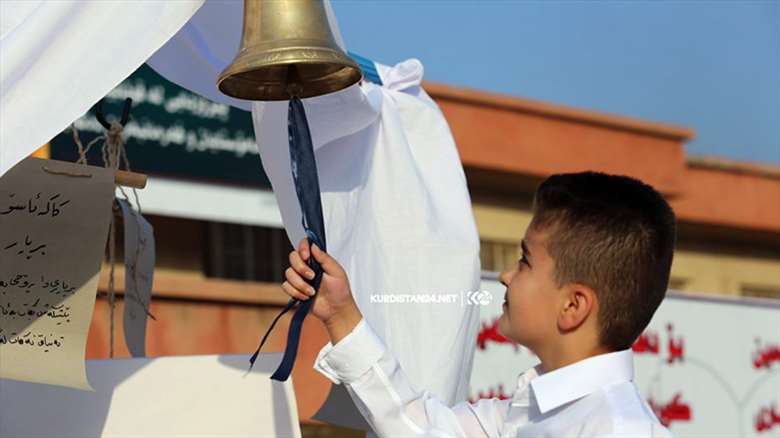UNICEF: Kurdistan Region introduces educational satellite TV channel for 1.5 million students

ERBIL (Kurdistan 24) – The United Nations Children’s Fund (UNICEF) announced on Tuesday that the Kurdistan Region’s Ministry of Education, with its backing, has launched a satellite channel to support the educational requirements of children and young adults while schools remain closed due to the COVID-19 pandemic.
According to a UNICEF statement, approximately 1.5 million students from first to 12th grade in the Kurdistan Region will be taught the Kurdish curriculum while they are at home, including refugee and displaced children.
“The closure of schools is having a disproportionate impact on the most vulnerable children—those living in poverty and in camps are being left behind because they may not have access to online learning opportunities,” Hamida Lasseko, UNICEF Representative in Iraq, said in the statement.
“We know from experience that the longer vulnerable children stay away from school, the less likely they are to return,” she added. “We must all work together to provide different ways for students to continue learning from home and maintain a routine.”
The satellite channel is called “Kanali Parwarda.” It will initially be broadcast daily for three months and will be available in Kurdish (Sorani), Arabic, and Syriac languages.
“In addition to the educational content, the channel will also disseminate awareness raising messages about COVID-19, including social distancing and handwashing practices,” the UNICEF statement said.
Nearly 10 million children and youth throughout Iraq have been directly affected by the closure of schools due to the coronavirus.
In late April, the KRG’s Minister of Education announced in a televised speech that an e-school program for grades one through 12 was being implemented to help students keep up their studies during the anti-coronavirus curfew that has closed learning centers throughout the autonomous region.
The satellite TV channel, though, is intended for students who have limited access to the internet.
Editing by Karzan Sulaivany
